Acted ensures Accountability to Affected Populations (AAP) by placing affected communities at the centre of our work, decisions and actions. Acted’s independent Monitoring, Evaluation, Accountability and Learning (MEAL) and operational project teams prioritise AAP to build better, more trusting relationships with the communities we serve.
Central to Acted’s approach to AAP is transparent two-way communication with affected individuals, and active involvement of local communities in Acted’s programme design, to ensure that our projects are relevant, meaningful, and fit for purpose. This includes the centrality of needs assessments, to ensure that affected populations can share their own priorities and preferences for receiving assistance, and open communication with communities, on topics such as Acted’s background and mandate; beneficiary selection criteria; affected communities’ entitlements and rights; and complaints procedures.

The Acted Feedback Mechanism (AFM)
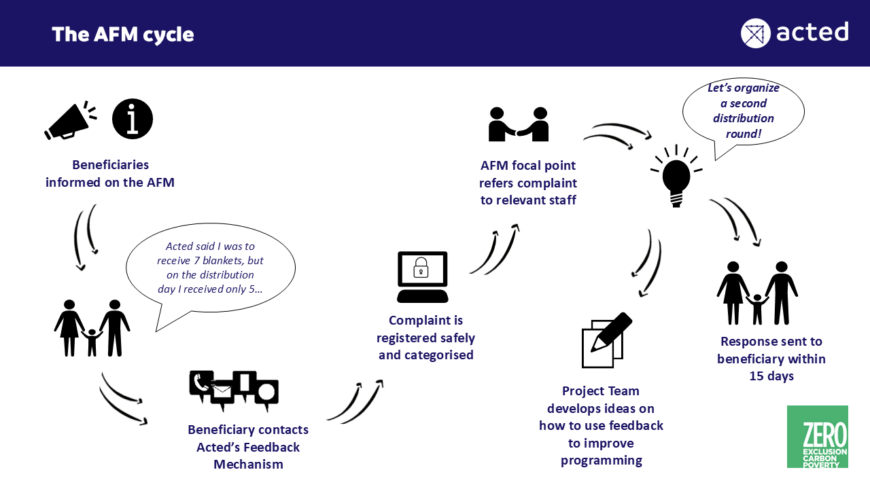
The Acted Feedback Mechanism (AFM) is an accountability mechanism managed by Acted MEAL units in each country where we work. The AFM is designed to support the participation of communities we work with, and to use community feedback to improve the quality and relevance of our programming.
The AFM is managed at country level and adapted according to community preferences in each context. This enables community members to register comments and complaints, or ask questions in local languages, through a range of modalities identified by our beneficiaries, including phone hotlines; complaint boxes; in-person help desks at project sites etc.
All complaints are treated confidentially and with objectivity. Complainants can submit complaints anonymously, although it limits Acted’s ability to provide a response or conduct an investigation. In any case, all complaints are recorded, categorised, and addressed, according to their categorization.
Acted uses five sensitivity levels to categorize complaints we receive through the AFM, each with their own unique follow-up protocol.
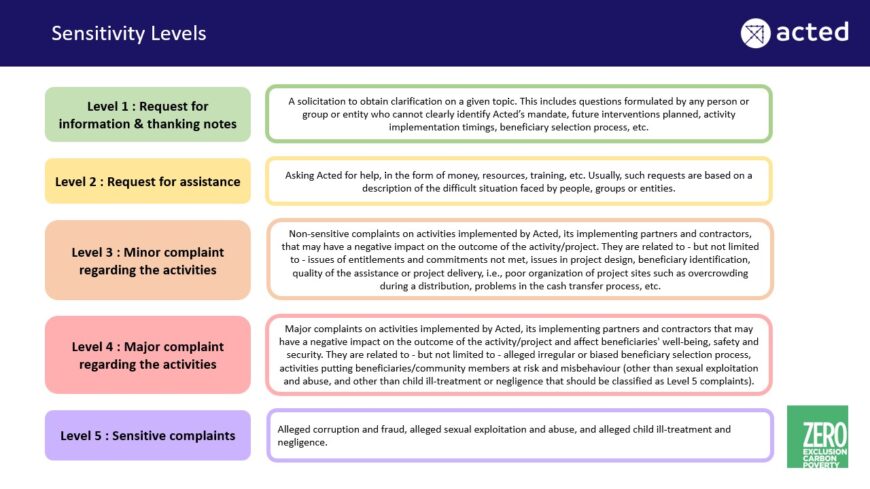
Level 5 complaints received through the AFM are immediately transferred to country coordination for review, and if credibility is achieved, sent to the HQ Investigation Unit for further investigation.
Acted’s Investigation Unit manages an independent Transparency hotline, which receives complaints of fraud and/or abuse including Sexual Exploitation and Abuse and Sexual Harassment (SEAH) related to Acted’s programmes and operations, and/or in relation to an Acted staff.
If you would like to report a case of fraud or abuse, you can directly access the Tline reporting system here.
In addition to safeguarding and receiving alerts on sensitive issues, the AFM is also a programmatic tool that facilitates adaptive management and continual improvement throughout the project cycle. MEAL/Accountability provides AFM feedback on Acted activities to programme staff i) during project Kick-Off Meetings, to ensure past feedback is incorporated; ii) throughout the project intervention, to enable corrective action in ongoing projects, and iii) during project Close-Out Meetings, to ensure lessons learned are captured and that community feedback is integrated into future project design. These processes are tracked through Acted’s Accountability & Participation Quality Marker, and through the ‘Strategic Analysis’ section of Acted’s AFM Diagnostic Tool.
If you would like to contact the AFM, please reference the following contact list.
Contact list
DownloadAFM Analysis
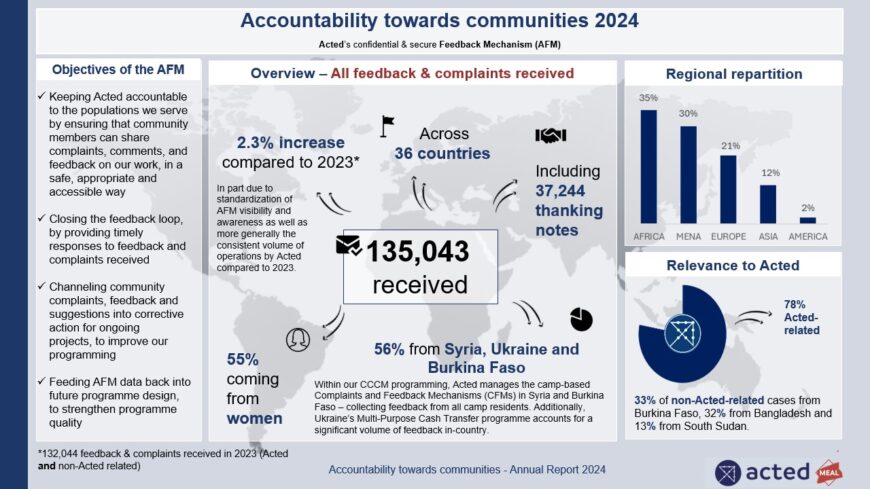
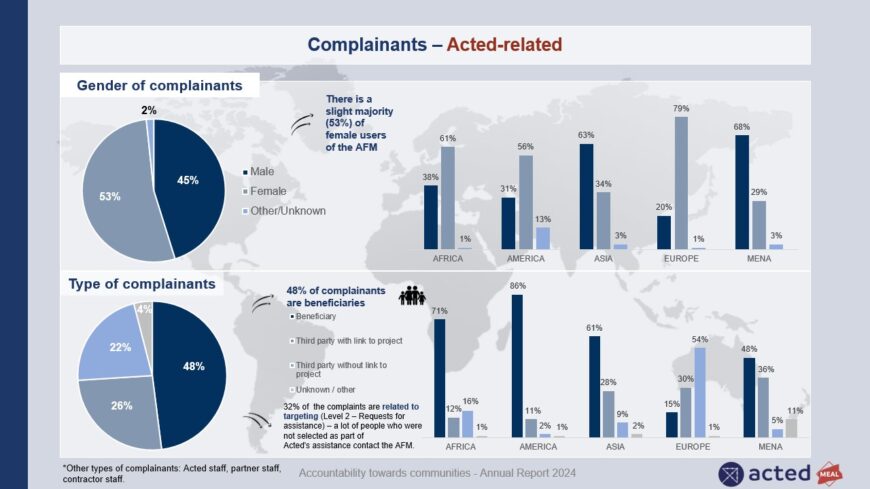
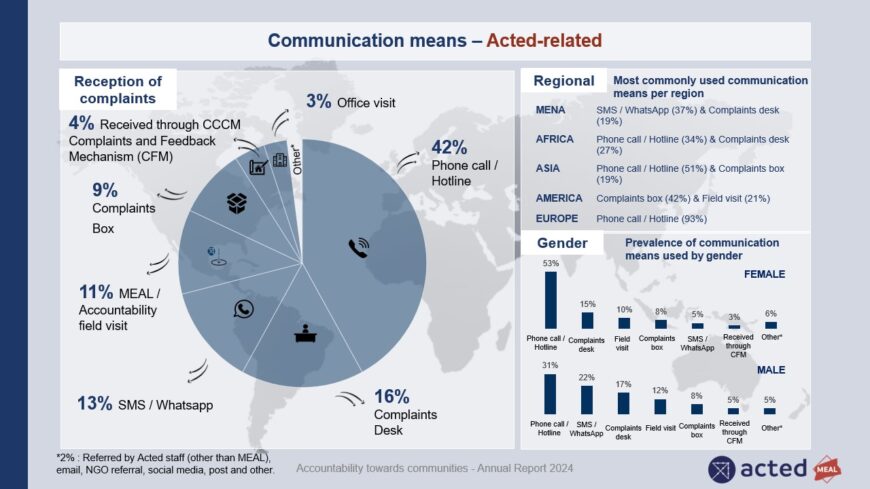
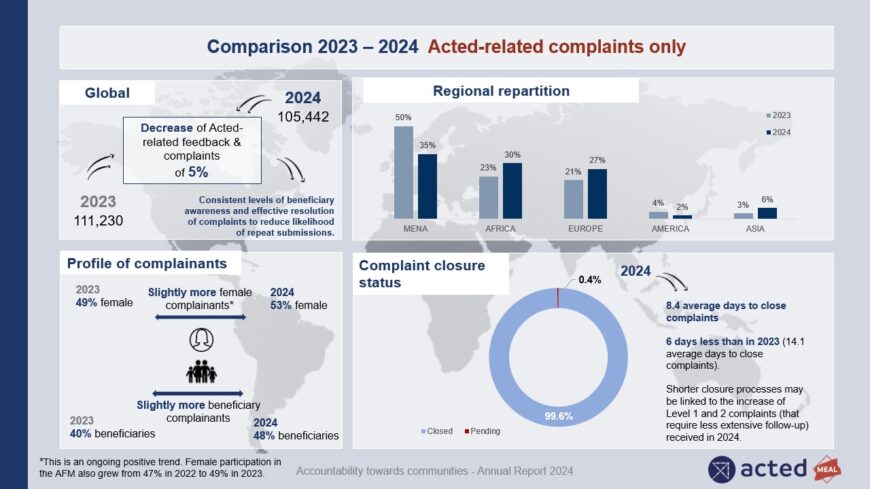
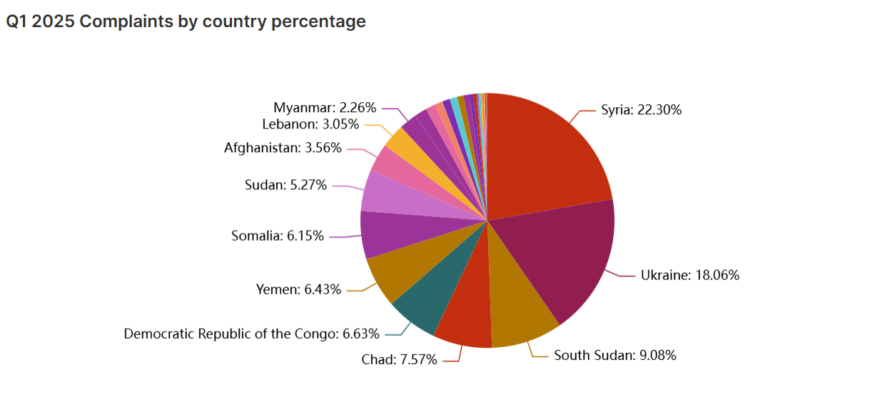
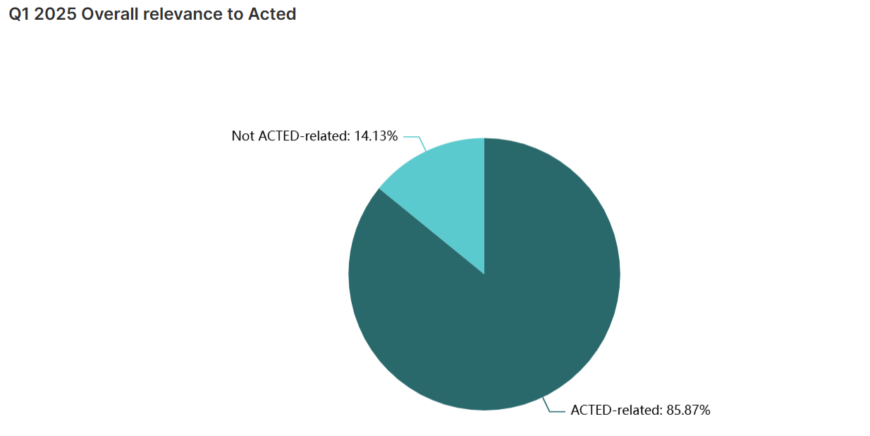
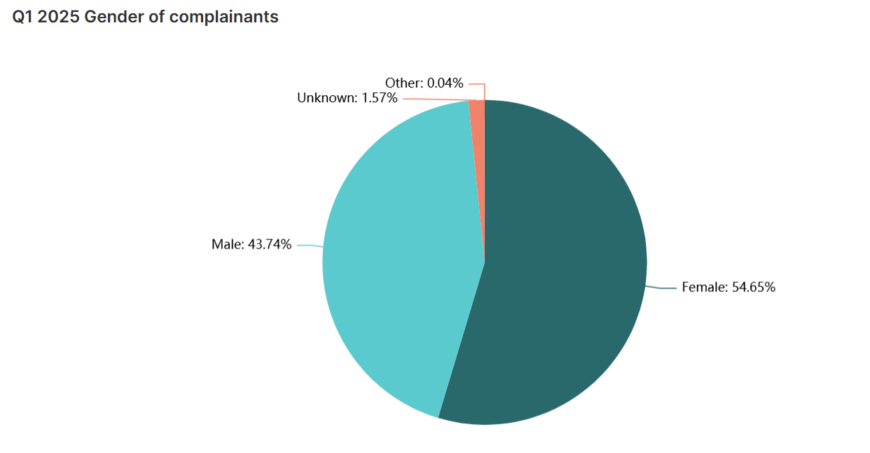
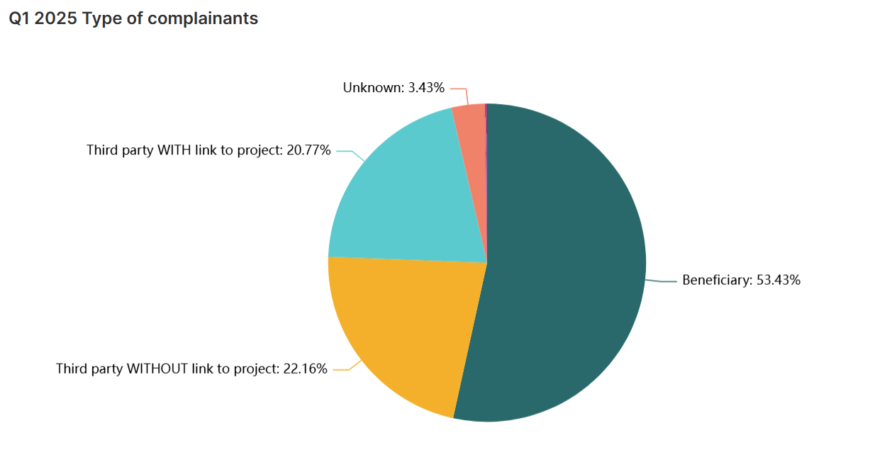
Q1 2025 Environmental and Social Risk-related complaints register
DownloadCHS Accreditation
Acted has completed the Core Humanitarian Standards (CHS) self-assessment as part of our commitment to a process of honest self-reflection and continuous learning. Acted is committed to improving our approach and practices, in line with the Core Humanitarian Standards (CHS) on Quality & Accountability.
The CHS commitments govern the way that humanitarian actors engage with populations affected by crisis in a way that respects their role as the primary actors in finding solutions to problems they face. The CHS standards are extensions of the basic principles of humanitarian action, including humanity, neutrality, impartiality, and independence.
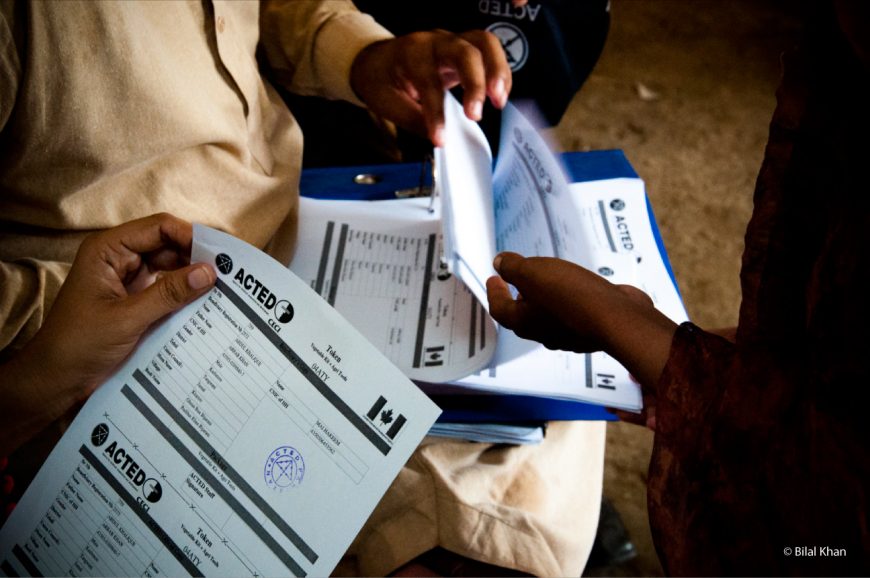
In 2023, Acted conducted the CHS self-assessment encompassing feedback, renewing its accreditation from 2018. Acted has met the CHS requirement level, with the self-assessment valid until August 2026.
